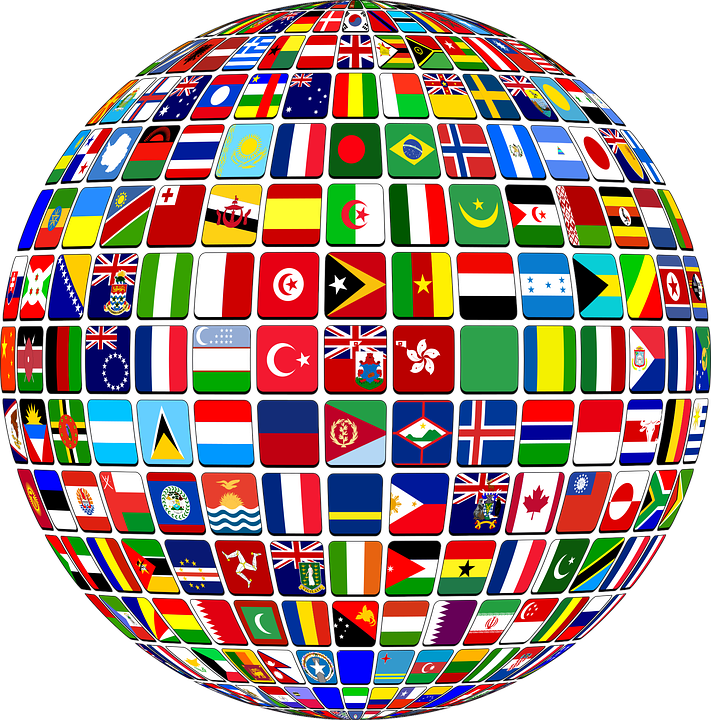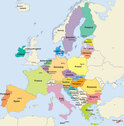
ECONOMICS
The Economics course will explore the basic principles and operations of the free market economy in the context of choices among scarce resources. Further, students will gain understanding of our role in the global economy, illustrating our interdependence. Lastly, students will develop skills for personal economics, personal finance, and general economic issues and events. |
|

HUMAN RIGHTS EDUCATION
This course focuses on giving students an understanding of human rights documents and human rights issues- such as civil liberties, students' rights, and genocides. The course includes historical and current issues. Students will realize the importance of becoming an informed citizen. They will participate in projects, readings, debates and other assignments that empower them to make their community and the world a better place as they learn how they can affect change through direct action. |
|
|
INTERNATIONAL RELATIONS
Is it for you? It is, if you’re a “big picture” person, concerned about global problems and how to solve them. It is, if you ever ask yourself if wars can be avoided or hungry people can feed themselves or the spread of AIDS in Africa can be stopped or the world’s resources can be more evenly distributed. And it is, if you want a challenging elective that will give you a world of information, help you improve research, writing, discussion, and debate skills, and be a whole bunch of fun in the process. |
|
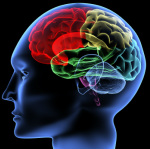
PSYCHOLOGY
If the workings of the mind interest you more than workings of society, our Psychology course is for you. This has been a popular elective at Northgate for over 20 years, combining a serious study of psychology with a lot of fun stuff. Take a blindfolded “trust walk” around campus, learn how optical illusions play with the mind, and hold a real human brain in the palm of your hand, in addition to studying behavior, learning, stages of development, mental illness, and much more. The major goal of psychology is to systematically study individual behavior and human mental processes to gain an understanding of the self and others. The course will explore cognitive aspects of the mind, or how humans think and feel about the world around them. The course will provide opportunities for students to become knowledgeable about the importance of attitudes, feelings, and values for themselves and others in determining human behavior; the scientific basis of behavior, the process of human development as a lifelong journey. |
|

PSYCHOLOGY - AP
The AP Psychology course is designed to introduce students to the systematic and scientific study of the behavior and mental processes of human beings and other animals. Students are exposed to the psychological facts, principles, and phenomena associated with each of the major subfields within psychology. They also learn about the ethics and methods psychologists use in their science and practice. |
|

SOCIOLOGY
The U.S. has both the richest and poorest people in the industrialized world; we have religious tolerance and religious extremism; racism still exists, but we recently put an African American man in the White House. Sociology class takes a look at these issues and many, many more. Class, race, gender, education, the family, teen stress, drug abuse, crime, prisons, work, television – you name it. As long as it has something to do with the way people organize themselves into societies, you’ll explore it in Sociology. Sociology’s goal is to make the students aware of sociological forces that shape the structure of life in the United States and in the world. The students will deal with basic institutions in society, such as the family, government, education, economics and religion. They will study how each institution affects life in the United States and in other societies in the world. In this course the students will explore such sociological concepts as change, the future and world population. |
|

UNITED STATES GOVERNMENT
The Government course will study the basic structure of American government, exploring what the role of government should be under our Constitutional system. Supporting objectives include historical political theories essential to the establishment of our system of government, supplemented by the social, economic, and religious institutions which influenced it. Further, an objective is to expose students to participatory government experiences leading to an informed electorate, capable of taking responsibility and leadership in society. |
|
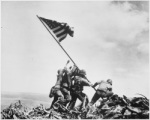
UNITED STATES HISTORY
The primary focus of this course will be to explore the major events, personalities, social, cultural, and technological changes that have shaped United States history from the 17th to the 20th centuries. The course begins with an overview of American history from the Age of Discovery to the Era of Reconstruction. The remainder of the course will be a study of the political, economic, social, cultural, and technological changes that have taken place in the Unites States in the late 19th and 20th centuries. |
|

UNITED STATES HISTORY - AP
The aim of A.P. U.S. History is to provide students with a learning experience equivalent to that obtained in most college introductory U.S. History courses and to prepare students for successful completion of the A.P. exam. This course will explore the major events, personalities, social, cultural, and technological changes that have shaped U.S. history from the 15th to the 20th centuries. |
|
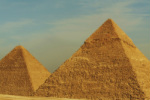
WORLD HISTORY
This course offers a study of world civilizations from the eighteenth through the twentieth centuries. The course begins with an overview of the origins of democratic thought and institutions from Greco-Roman times to the eighteenth century. The main topics of the course are: the Enlightenment, the French Revolution, the Industrial Revolution, Western Imperialism, World War I, the Russian Revolution and the rise of fascism in the interwar period, World War II, The Cold War, and topics in contemporary history. |
|

WORLD HISTORY - AP
This course highlights the nature of changes in international frameworks and their causes and consequences, as well as comparisons among major societies. Focused primarily on the last thousand years of the global experience, the course builds on an understanding of cultural, institutional, and technological precedents that, along with geography, have set the human stage. Students will be prepared to take the AP exam in World History. Potential students must apply for World History AP through the Social Science Department. |
|
|
EUROPEAN HISTORY - AP
This course will provide students with a learning experience equivalent to that obtained in most college introductory European History courses and prepare them for successful completion of the A.P. exam. This course will explore the major events, personalities, and social, cultural, and technological changes that have shaped European history from the 15th to the 20th century. |
|

Ethnic Studies
Ethnic Studies is the examination of historic and contemporary narratives, contributions, oppression, and resilience centered around Black American, Native American, Chicanx/Latinx, and Asian American (including Arab Americans) communities. The Ethnic Studies course focuses on these groups’ experiences in the United States and includes an exploration of race, racism, and resistance movements. The course fosters and encourages community responsiveness, social engagement, healing, and hope. |
|
|
Careers in Teaching (CTE)
This course provides students with knowledge of career opportunities in the field of teaching and other school site education professions. Career preparation standards, which include basic academic, safety, communication, interpersonal and problem-solving skills are integrated throughout the course. Active class participation is enhanced by fieldwork at school sites under the guidance of a mentor teacher. All students are required to observe and/or participate in a variety of settings and classrooms at the primary, elementary, middle/junior high and secondary levels. The course helps prepare students for entry into college or university teacher training programs. This course is articulated with Diablo Valley College (DVC). Students who earn a C or better in the course and a B or better on the final exam will earn 3 units of DVC credit. *This is not a Social Studies elective or core course offering but is taught by a member of our social studies department. Completion of this course will fulfill G elective requirements for UC/CSU. |
|



